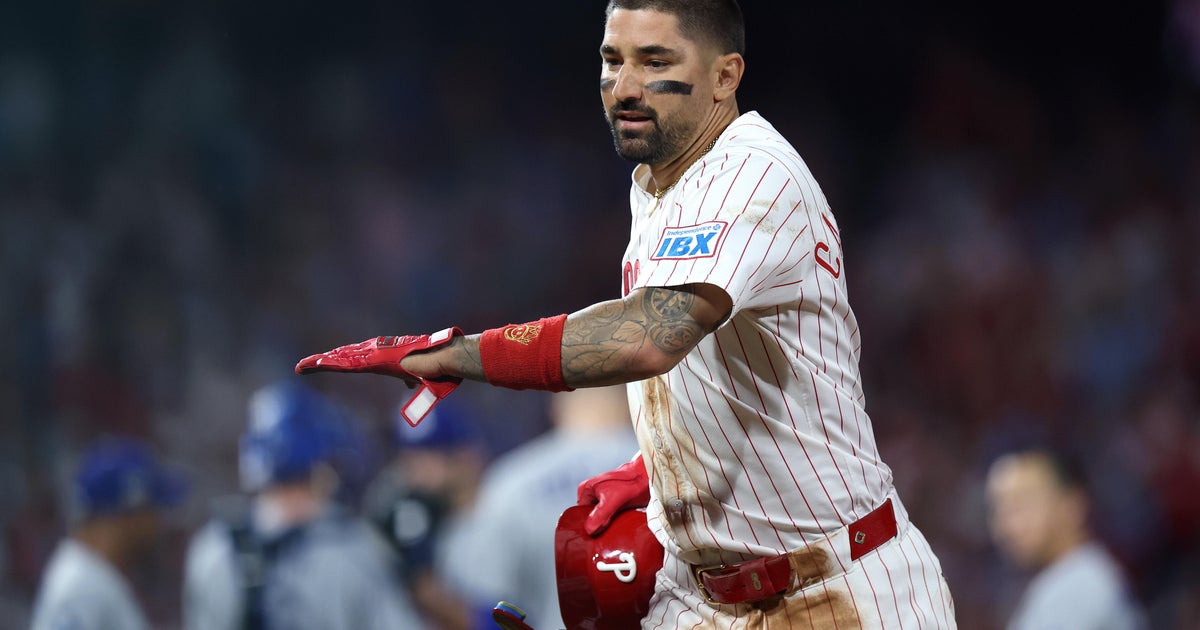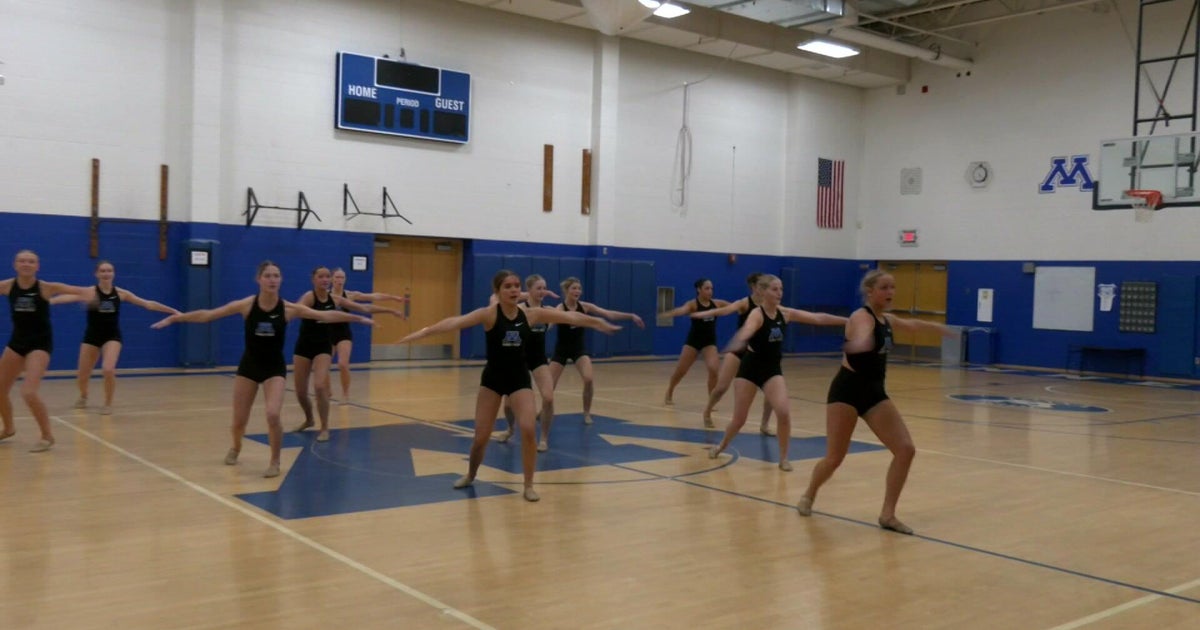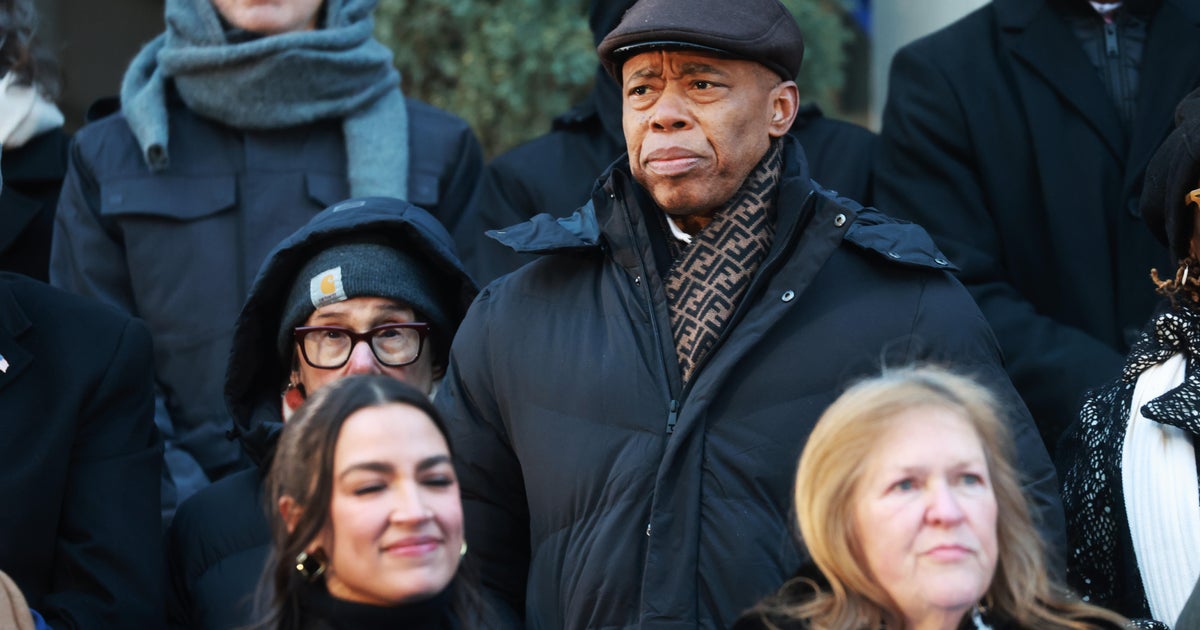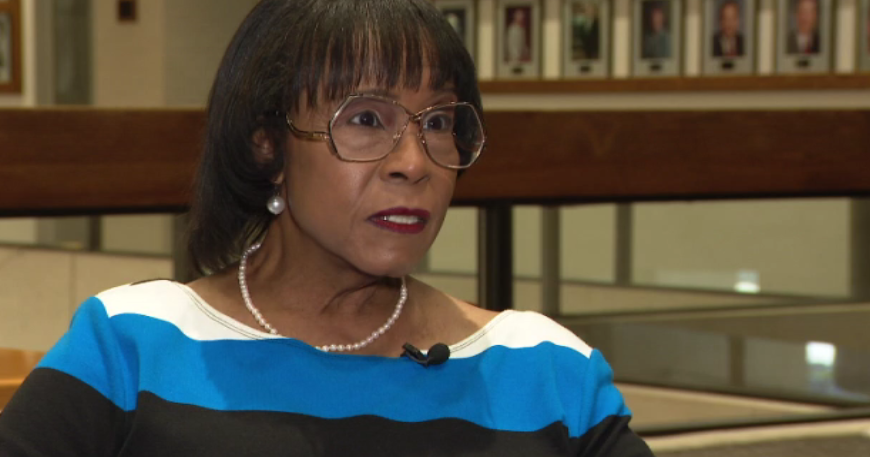Angi: The Adam Dunn Conundrum
By Cee Angi-
(CBS) Growing up, my parents didn't put a lot of pressure on me; however, there was always an unspoken understanding that I should do something meaningful with my life. To them, that meant doing something important like day trading, owning a business, or being President.
The problem was that regardless of what they perceived my upside to be, I didn't seem to belong on the straight and narrow path. Anyone holding their breath for me to take a job at NASA to earn millions inventing things turned blue and died a long time ago.
In the same way that every parent believes their child could cure cancer despite their aptitude (or lack thereof) suggesting otherwise, many people have high aspirations for ballplayers. From the moment a player enters the team family, there's a hope that the player will not just meet but exceed their projected upside. If we don't work hard to mitigate those expectations, there's bound to be disappointment…just ask Adam Dunn.
When the White Sox signed Dunn to a four-year, $56 million deal prior to the 2011 season, the left-handed slugger was supposed to fill a Frank Thomas-sized hole in their lineup. But Thomas he is not, and since 2011, he's hit .197/.317/.404, a slash line that sparks a lot of undercooked analysis, since his batting average is so low. He doesn't hit for average, so a lot of people think he's just not good at baseball, but that's not exactly true.
Dunn is a true three-outcomes hitter, meaning the majority of his at-bats end in one of three ways: a walk, a strikeout, or a home run. In 13 seasons, he's averaged 192 strikeouts, 108 walks, and 38 home runs per 162 games played. This season, he'll probably come up just short in the home run department—he'd need six more in the final 10 games of the season—but the 32 he's hit is more than double any player on the Sox' roster. Dunn's OPS+ (101) is also the highest on the team, and he also leads in walks, and RBI.
It takes a little bit of digging beyond batting average to see Dunn's value, but it's undeniable that rosters do have spots for players who can hit home runs and get on base by taking walks, just as they have room for more traditional players that hit for average. Dunn's isolated power (slugging percentage minus batting average to discount the singles) of .218 ranks 16th in the majors. He ranked seventh last year, and even with the debacle that was 2011 figured in, he ranks 38th among all players during his White Sox period (minimum 1000 plate appearances).
Dunn hasn't been perfect, and he certainly hasn't done enough to justify his $15 million paycheck this season, but when things have been tough, he's at least tried to prove he's adaptable. At one point in June and July, he was hitting a home run for every 10 plate appearances; when he regressed from that, he tried to combat the slump by refining his hitting approach by strategically placing ground balls in the gap and beating the shift, a strategy that worked for a brief time. While he's doing his best to finish the season strong, in the last 28 days, he's hit .134/.211/.280—a slash line that's pretty much impossible to defend.
The Dunn Conundrum, which has no easy solution, is that when the Sox signed Dunn they thought they were signing a player to be their long-term solution at designated hitter, but there's something obvious about his production that the organization keeps tap-dancing around: Dunn, who spent the first 10 seasons of his career in the National League, hasn't proven he's capable of being a DH.
In his career, Dunn is hitting .246/.376/.511 when he plays in the field, but in 1102 career plate appearances as a DH, he's hitting just .192/.311/.399. With that many plate appearances, we're well out of small sample size territory and if you compare Dunn's production as DH to other players with more than 1000 plate appearances as DH, he ranks 11th on the list for the lowest OPS, which is even worse when you consider the bias that's built into that list since many players moved to DH later in their careers when they were already in decline.
Ideally, the White Sox could just say, "Sorry, roster's full" and make Dunn someone else's problem, but he's heading into the final year of his contract and scheduled to make another $15 million dollars. When the Sox put him on waivers, they didn't get any nibbles. There's a chance that the offseason could play out differently, but there aren't many teams that would be interested in an inoffensive DH at any price, much less an inflated one.
Dunn could snap out of this next year -- there is no physical limitation that prevents him from hitting well when not playing the field-- but it seems like he's one of those players who can't get comfortable at the plate if he's not wearing a glove between plate appearances. I don't know what it takes to fix that; maybe someone needs to say, "Go talk to David Ortiz and figure out how to stay prepared between at-bats," or perhaps the trainers can recommend he hops on the bike or runs laps around the clubhouse before at-bats. But, the White Sox have got to do something to help his production as the DH, because as much as I'm inclined to find the silver linings in Dunn's batting-average-free output, one thing is clear: Dunn should never ever wear a glove again.
Dunn was never skilled in the field; he was a lumbering liability in left field. The Reds and Nationals tried him at first base, a position where teams are willing to accept weaker defense in exchange for a big bat, especially in the National League, which lacks a DH position at which teams can hide their good-hit/no-field players. That's what made Dunn so appealing to the White Sox in the first place. Ideally, they'd get his big left-handed power without having to parade him on the field nightly. Unfortunately, because of Paul Konerko's lower back injury, Dunn has split his time equally at first and as DH this season. According to Defensive Runs Saved (DRS), which rates plays on a simple plus/minus basis, then counts the number of runs a player saved or cost his team when compared with the average player, Dunn has cost the team 12 runs while playing in the field this season.
Defensive metrics still have a long way to go to match the precision of their offensive counterparts, but according to defensive Wins Above Replacement, or dWAR, Dunn (-27.4) ranks just below Gary Sheffield (-28.4) as the worst defensive player of all time, which isn't surprising given his lack of range and the fact that he's as limber a 2"x4" when attempting to scoop up balls. Dunn has eight errors on the season and he's not great at double plays, especially if he's the one instigating them – he has by far the fewest number of assists of any first baseman with his number of defensive innings and has not participated in a 3-6-3 double play this season
This presents a problem for a Sox team trying to improve itself. Defensive metrics have the White Sox in the league's bottom five, and there's just too much mediocrity at almost every position. There's a tipping point where you go from sustainably mediocre to hurting yourself, and the White Sox have passed it. The Sox' greatest strength next season will be their pitching, and the only way to thoroughly exploit that is to improve on defense. Dunn is not so great a hitter, even allowing for the things he does well, that he isn't a net negative when he wears a glove.
The Dunn Conundrum is bigger than all of that. Not only is he owed $15 million next season, but the utility of a designated hitter that can't hit is open to question. He's like a clock without hands or a sink without a faucet—there's probably value in there somewhere, but you're going to have to look awfully deep to find it. In the short term, though, even with his dramatic splits as DH, the Sox would suffer without Dunn because they don't have another 32 home runs coming from anybody, and they certainly don't have a surfeit of patient hitters who take walks in the way that Dunn does.
These are the kinds of frustrating players that bad teams have, and vice-versa: They have limited players because they're a bad team, and they're a bad team because they have limited players. Maybe the best advice is just to not worry about the money and ignore the fact that Dunn is probably not going to replace Frank Thomas or cure cancer next season and accept him for the limited player that he is. He's going to be here next season, and the biggest challenge likely won't be his batting average, but somehow getting him to overcome the mental block that's he's built when he's just swinging the bat instead of wielding the glove.
Cee Angi is a freelance sportswriter, whose work has appeared at Baseball Prospectus, The Platoon Advantage, The Classical, and is currently one of SB Nation's featured columnists covering Major League Baseball. Follow her on Twitter @CeeAngi and read more of her CBS Chicago blog entries here.







